We are
United for
Literacy

Making a difference
Each year, over 40,000 children, youth, and adults in over 250 urban, rural, and remote places across Canada (including over 100 Indigenous communities), gain access to free, inclusive literacy and numeracy programs, in person and online, supported by up to 2,500 trained volunteer tutors.
That's impact.

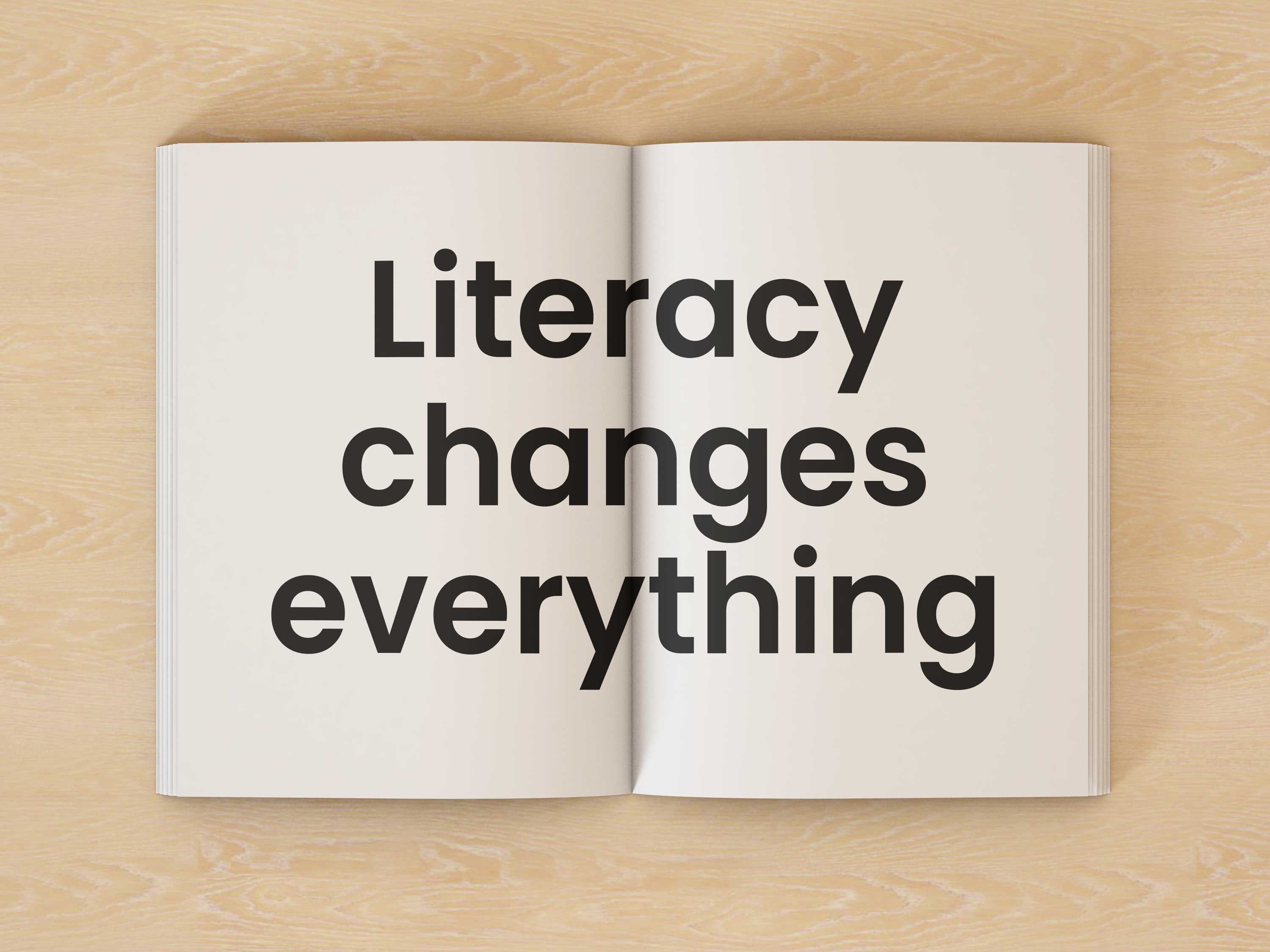
Why Literacy
Literacy is the foundation of all learning. Everyone can learn, but not everyone can access the support they need. We know because we’re Canada’s original champion of the cause. We’re proud to have been bringing literacy to communities since 1899, starting with reading camps equipped with books and volunteers to teach people in remote locations.
Literacy changes futures…for people and communities. Today, taking literacy into communities has never been more important. The United Nations Educational, Scientific and Cultural Organization (UNESCO) defines it as, “a continuum of learning to enable an individual to achieve his or her goals, to develop his or her knowledge and potential, and to participate fully in the wider society.” We reach out to people wherever they are and respond to their learning needs. We meet our learners where they are, in every sense. As needs evolve, United for Literacy is committed to finding innovative ways to reach more people in need, online as well as in person.
Literacy is achievable. Inspired by our volunteers, partners, and rising demand, we’re leading the national movement to transform Canada’s growing literacy divide. Low literacy skills are directly linked to poverty, poor health, and high unemployment. Bridging the literacy gap is achievable and urgent. It’s our most effective, achievable tool for improving the lives of millions of Canadians.
“Bring education to the people,
not the people to education.”

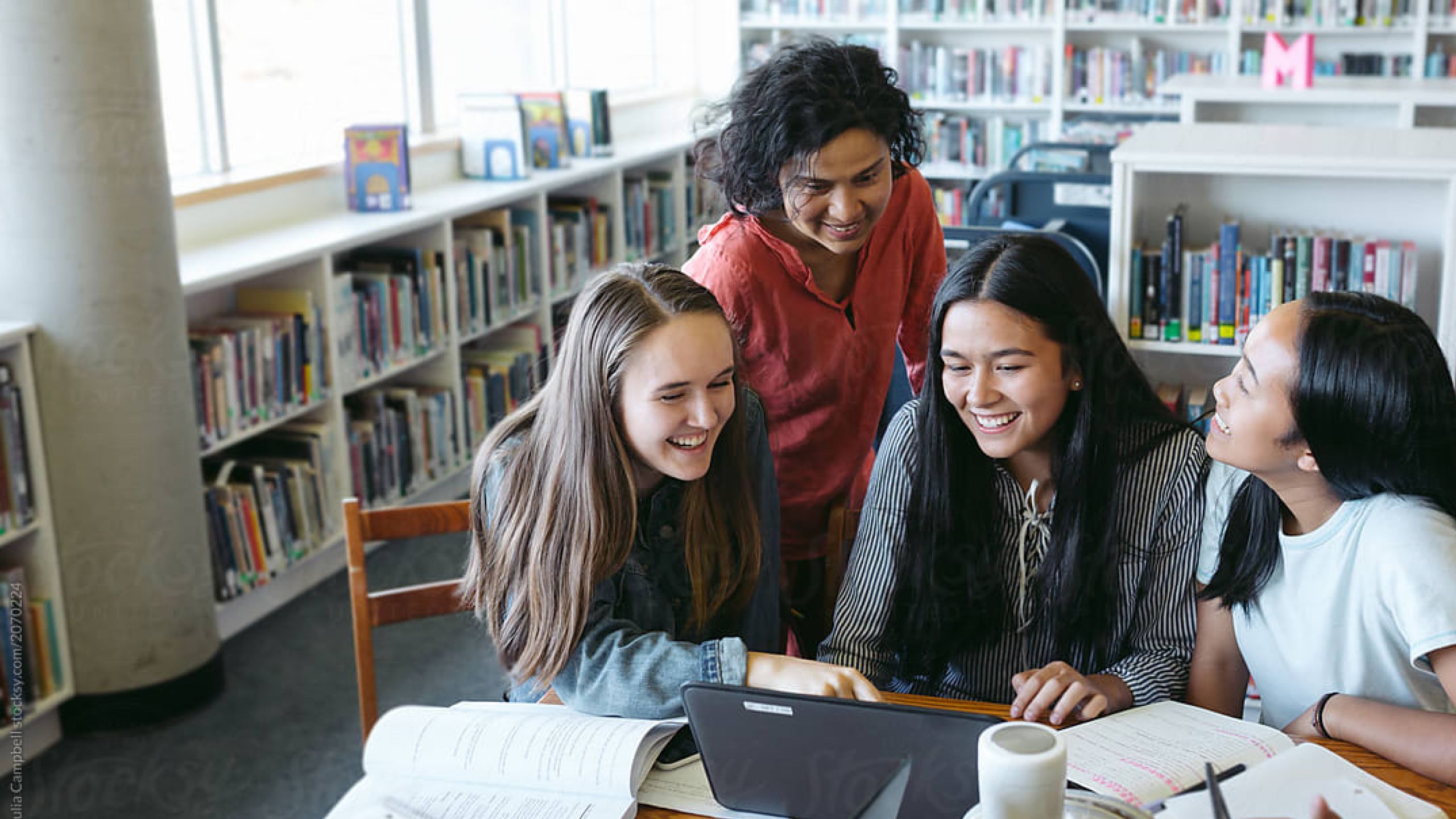
Celebrating a fresh beginning
Our new name, United for Literacy, signals the ambitious next chapter in our work to support people as they achieve their goals and dreams.
Our name is about deepening and broadening our commitment to our learners, volunteers, and partners; they are at the heart of what we do. As an organization dedicated to removing barriers to literacy, we listen closely to our community. Increasingly, we found that the name Frontier College created confusion for learners and that there is a strong disconnect between what we do and what we are called; “Frontier” doesn’t reflect the diversity of where we operate today, on site and online; we are not a College; and the word literacy is not in our name.
United for Literacy clearly describes our purpose and—in plain language—communicates our values and approach. We mobilize volunteers, partners, and communities in a common cause: to ensure everyone has the skills and confidence they need to learn and achieve their goals through the power of literacy.
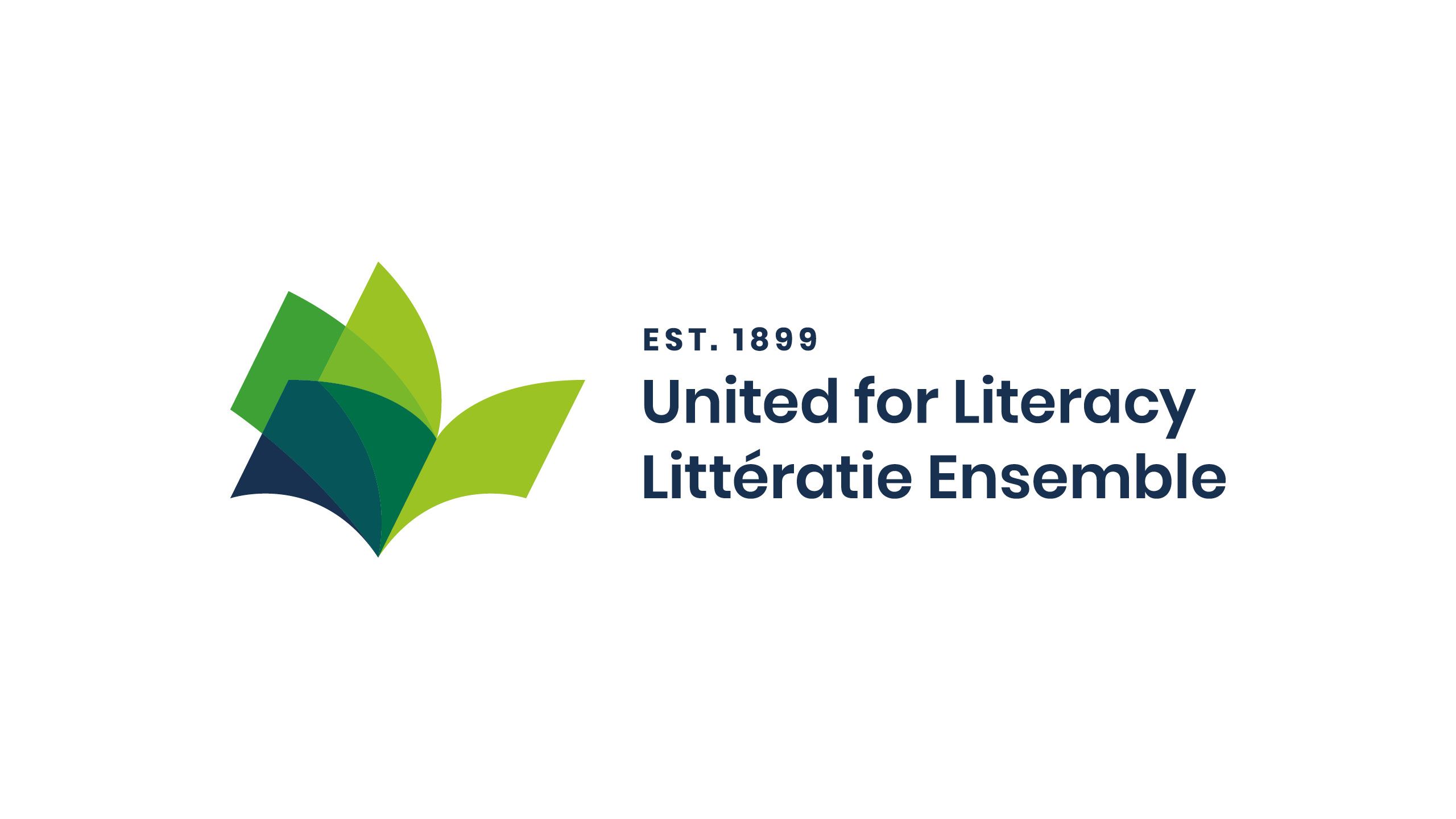
Literacy is…
…transformational
It changes lives, families, and communities. It feeds growth, unleashes potential, and empowers people with the capability and confidence they need to realize their goals.
…urgent
Everyone can learn. But not everyone can access the help they need. Canada’s literacy divide widens daily because so many people and communities lack adequate literacy support.
…dynamic
Society demands increasingly sophisticated understanding of written language to fully participate in daily life.
…vital
to Canada’s long-term success. Solving systemic literacy challenges is key to advancing social equity and prosperity across our country.
…achievable
Bridging the literacy gap is something we can do. It’s our most effective, achievable tool for change. Results are demonstrable at personal and systemic levels.
Literacy changes everything.

"Established in 1899" to reinforce our 120+ year legacy.
English/French and French/English versions are available.
Our symbol is dynamic but easy to recognize as a book.
The identity system is designed
for digital environments.
Our mission
We believe literacy is a right. We work with volunteers and community partners to give people the skills and confidence they need to reach their potential.
Values
Our staff and volunteers provide excellent and effective programming to improve literacy in communities across Canada, from coast to coast to coast. We value mutual respect and collaboration in all our relationships.
Our Vision
Literacy is recognized as a human right and a driving force to empowerment and prosperity. United For Literacy leads the effort in Canada to help people and communities achieve their goals through the power of literacy.
Who we support
We offer free tutoring and mentoring to adults, youth, and children who need extra support to succeed in the mainstream school system, in the workplace, or in life. Our learners include: those experiencing poverty and living in under-resourced communities; individuals with disabilities; low-skilled workers; and newcomers to Canada. Equity, diversity, and inclusion are key attributes of our approach.
Where we work
Across Canada—in urbanized, rural, and remote locations—we believe any place can be a learning place.
- Locally, and online, we deliver free tutoring that meets people of all ages wherever they are, with high-impact, learner-centered solutions through community partnerships.
- Nationally, we work with partners to solve systemic literacy challenges that will advance social equity and prosperity across our country.
What makes us uniquely effective
Free, learner-centric solutions: Practical and goal-oriented, in person and online.
National reach: We go wherever needs are greatest, in communities of all sizes, using creative approaches to reach diverse types of learners.
Breadth and depth of solutions: We co-create approaches to address unique needs in under-served and remote communities.
Unique expertise: Volunteer mobilization, partnership development, capacity building, and training are key strengths.
Partner-of-choice: As an ally, we co-design literacy solutions with under-served people and communities.
Commitment to innovation: We are committed to using innovative ways to reach the people who need us most. Our activities, programs, and services are inclusive of any individual for whom our assistance is welcome and needed.
Examples of our services:
Summer Literacy Camps in partnership with Indigenous communities, for children and youth in over 125 locations. We collaborate with communities to develop camps that best suit the needs of their children and youth.
Basic math, literacy, and exam preparation for adults and youth pursuing careers in trades.
Workplace literacy and essential skills for employees.
Literacy and life skills for adults with disabilities.
Academic upgrading for at-risk youth: (General Educational Development®) and computer skills training.
Literacy training for incarcerated individuals.
Reading, math, and homework support for children and youth in a variety of settings.
Support for newcomers to Canada and temporary foreign workers, such as English/French as an additional language.
Intergenerational programs for families
Literacy- and learning-based conferences
Family literacy workshops



Literacy for all
Everyone deserves access to literacy and learning. United for Literacy is dedicated to making that possible.
Literacy is more than the ability to read and write. It’s the ability to understand the printed word, put it to use, and engage fully in activities and opportunities at home, at work, and in the community. It’s about succeeding in today’s world.
Our programs are effective because they’re adaptable to the specific needs of individuals and communities, especially those who experience barriers or who do not succeed in mainstream education systems. Everyone can learn. But not everyone gets the help they need.
Early gaps in schooling or socio-economic factors mean many people are playing “catch-up” from the beginning. Our learner-centric approach—tailored to a person’s skills, interests, experience, culture, and goals—engages them in deciding what they want and need to learn.
What many Canadians don’t know is the literacy rate in Canada is low and the need is high.
Improving literacy improves people’s lives—research shows that people in Canada with higher levels of literacy, numeracy, and problem-solving skills report better health and stronger connections with their communities and society. Literacy upgrading also has a positive impact on higher earnings and job retention.
While Canada is considered a highly literate society, almost one in five (17%) Canadian adults have extremely low literacy. At this level, a person may find it very difficult to: follow instructions on a medicine bottle or workplace health and safety instructions; apply for employment or housing; understand a legal document; read a bus schedule; help with schoolwork or open a bank account.
Literacy touches virtually every aspect of our lives and has a great influence on our well-being. Effectively using the printed word in daily life is essential to fully engaging in society and achieving one’s personal goals. Yet people of all ages—even whole communities—face unique barriers to being fully literate which fuels poverty, poor health, and major social challenges.
Bridging the literacy gap is doable and urgent. Low literacy skills are directly linked to poverty, poor health, and high unemployment. Bridging the literacy gap is something we can do. It’s our most effective, achievable tool for dramatically improving the lives of millions of Canadians. A TD Economics report describes literacy this way: “it is hard to identify any other single issue that can have such a large payoff to individuals, the economy, and society.”
“Literacy is important not just for work and learning, but also for quality of life. Even those who predict a kind of employment dystopia, where robots take over most jobs, call for increasing levels of literacy and other cognitive skills to support a life of self-fulfillment outside the traditional areas of the market economy.”
"Literacy is much more than an educational priority; it is the ultimate investment in the future and the first step towards all the new forms of literacy required in the twenty-first century."
“Higher literacy can boost the economic and financial success of individuals and the economy. It can reduce poverty, improve health, lift community engagement, and lead to a higher standard of living. In fact, it is hard to identify any other single issue that can have such a large payoff to individuals, the economy, and society.”
Literacy touches virtually every aspect of our lives and has a great influence on our well-being.
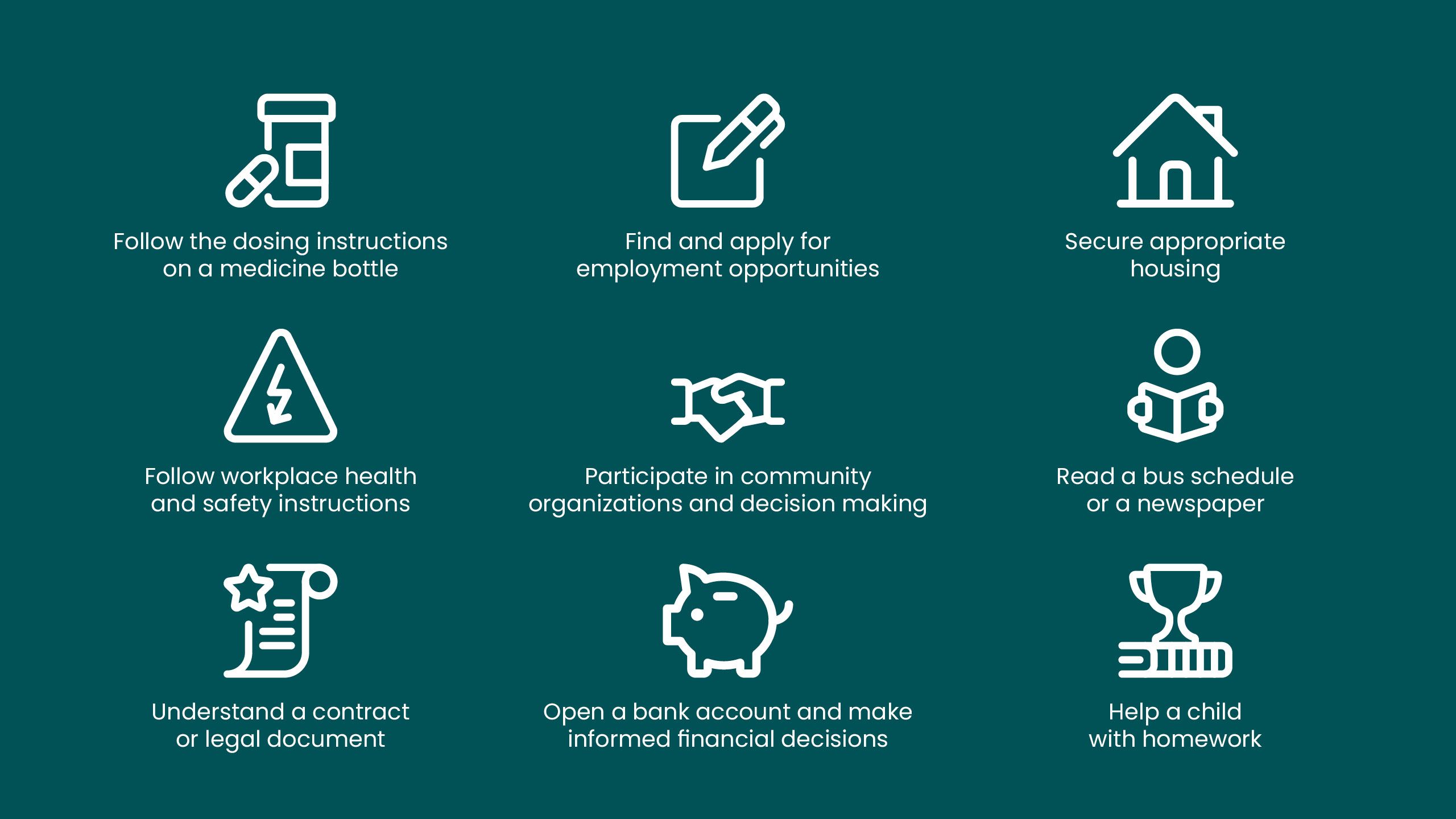
United for change
Adults, youth, and children may face barriers to learning, including their location, family and legal issues, employment and financial concerns, trauma, health matters, and a lack of support systems. It is through our partnerships with communities and volunteers that we provide basic literacy support designed with overcoming barriers in mind.
Our learner-centric programs are tailored appropriately to different ages, life stages, and community priorities. Educators widely regard our programming as best-in-class examples of Student-Centered Individualized Learning principles.
Since 1899, our All Welcome! approach and innovative services
continue to transform every place into a learning place. From coast to
coast to coast, our programs serve all ages, in person and online.
Programs for Adults
Our tutoring (one-to-one or in small groups), both online and in person, help adults increase their essential skills, complete their high school education, find sustainable employment, and fully engage in their communities. Using adult learning principles, instructors and tutors help participants build the foundational skills and confidence to become self-directed, life-long learners. Resources are tailored to their skills, interests, experience, culture, and goals.
Community programs
Our community programs include those for young adults and adults with developmental disabilities.
Older youth and adults improve their foundational literacy skills and build their confidence as learners, so they can pursue personal goals – getting a driver’s license, accessing government supports, returning to school and more. Programs are offered in locations such as libraries, schools, community organizations, social service agencies, and correctional facilities.
Workplace, workforce development
Older youth and adults improve their foundational literacy, numeracy, digital, and soft skills (e.g., teamwork, time management, problem-solving) for the labour market. Workplace programs are offered in direct partnership with employers. A significant share of these programs focus on preparing individuals from underserved communities to benefit from opportunities in the skilled trades.
Literacy upgrading has a positive impact on higher earnings and job retention.
Nationally - our learners
60% - Children
16% - Youth
12% - Families
12% - Adults
Our programs
40% - Large Group
38% - Tutoring
22% - Summer Camp
Programs for Children and Youth
Literacy, numeracy, and essential skills play important roles throughout our lives as we develop from children to adults. Through our Reading Tents, where children of all ages enjoy settling in for an afternoon of fun, to our Summer Literacy Camps, Homework Clubs and Reading Circles that provide additional support, we are raising the next generation of readers and leaders!
We’re passionate about educational experiences that help children reach their full potential, promote healthy development, nurture their interests and hobbies, and supports their families by offering safe, free tutoring and after-school programs.
Tutoring: 1-to-1 or Small Group
Volunteer tutors provide individual or group tutoring with learners in person or online. Learners work to improve literacy and numeracy skills and participate in group activities and games.
Reading Circles
Volunteers facilitate a weekly reading circle for children (K- 6) to foster a love of reading and provide access to books for children through group reading and games.
Homework Club, After-school Programs
These provide support to learners in grades 1-12, who bring homework to the program for personalized academic support.
Summer Literacy Programs
Summer Literacy Camp, run in partnership with Indigenous communities, aims to prevent loss of skills between one school year and the next. Community members and Elders also participate as role models and educators by incorporating cultural learning and traditional language.
The camp program has expanded to urban locations.
Sharing ideas that work
Working inclusively with others is at the heart of what we do.
We are proud to be a trusted partner in helping people through literacy. More than ever, we are committed to deliver on impact through the collective power of our partners, staff, supporters, volunteers, and learners.
We connect and share our expertise with families, educators, and members of the social service sector.
We build community capacity by providing literacy resources, professional development workshops, and distributing over 60,000 free, new books to 200+ community organizations, schools, libraries, social service agencies, shelters, and public housing organizations. Our partners support our child and youth programming by providing space, staff, snacks, and supplies.
95% of educators reported that United for Literacy programs helped them to be more effective in their work with children and youth.
“Providing opportunities to extend the day for families in our community is very important. Many of the families are unable to afford extra-curricular activities for their children. United for Literacy provides the opportunity for students to enhance their literacy and numeracy skills and engage in collaborative activities that foster a sense of community.”
“Thanks to United for Literacy, we have impacted the lives of over 150 children each year since our partnership was first formed. Many of our members would not otherwise be exposed to such opportunities and experiences without their involvement. Our parents appreciate the avenue of opportunity that a free-of-charge literacy-based education offers their children during critical stages of emotional and social development.”
“United for Literacy programs are succeeding in building positive skills and attitudes related to literacy, numeracy, and schoolwork, and that these gains lead to improved school performance and, ultimately, better life outcomes. By targeting students from underperforming schools, the
programs are helping to narrow the gap in skills, educational achievement, and life circumstances between Canada’s more and less advantaged residents.”
Create and innovate
Digital Tutoring
Originally introduced in response to the COVID-19 pandemic, our research shows that digital tutoring offers a host of benefits for some learners and families as well as staff and volunteers:
- Tutors and learners can be paired across distances online, which extends our geographic reach.
- Online services increase accessibility for learners with behaviour, mobility, or other challenges.
- Some families and tutors prefer online tutoring because it’s more convenient and flexible.
- Learners’ parents are more directly involved/engaged, enabling two-way information sharing.
- Staff and volunteers can leverage online tools and resources to enhance their work with learners.
- Learners develop digital skills.
- Research confirms that learner outcomes (confidence, completion of schoolwork) are often stronger with digital tutoring.
Program innovations
Our goal is to support more people. By highlighting the importance of literacy and ensuring that our programs are effective and responsive to our learners’ needs, we’re continually exploring new opportunities to bring learning to life in creative ways:
Innovating for learners:
- Learning Kits to keep kids interested in reading and writing at home
- Distance tutoring programs for Inuit students preparing to graduate high school.
- Through our online library of literacy and numeracy resources, adult learners and trained tutors located anywhere can work together in real time to address individual learning goals.
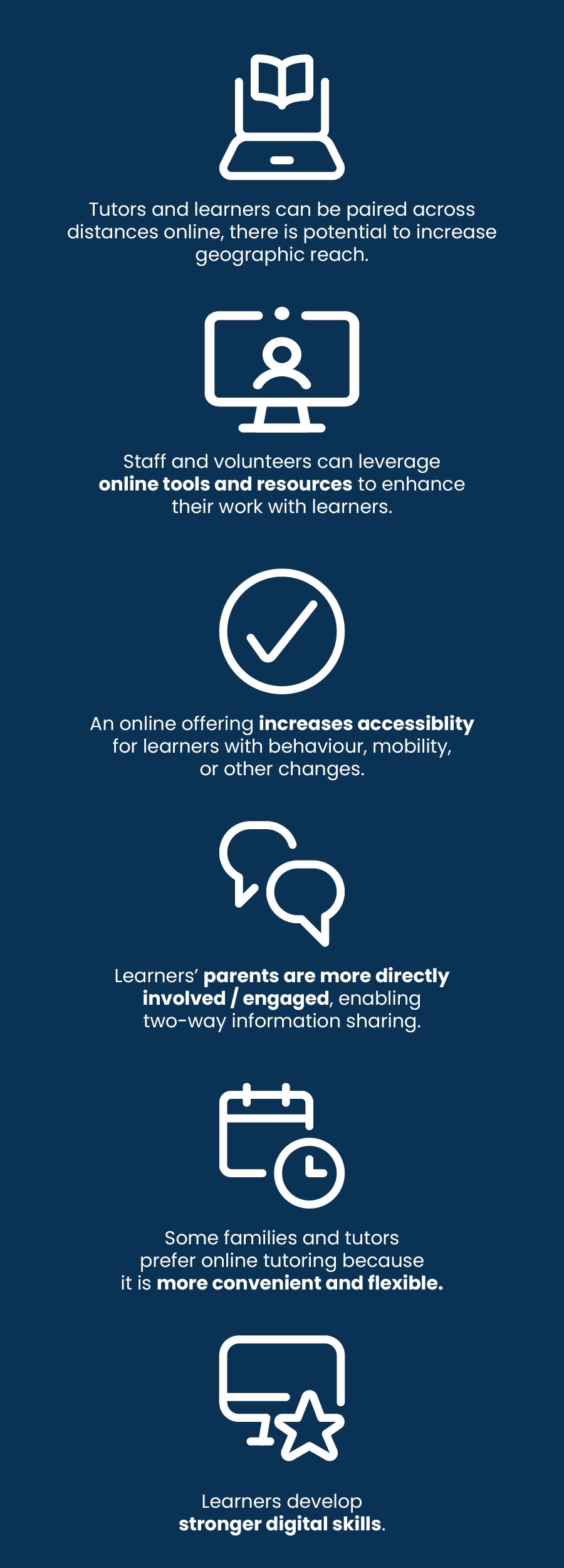
Innovating for partners:
- Community Literacy Catalyst is a year-round, community-led program. Local residents are hired and supported by United for Literacy, to lead the delivery of customized, culturally relevant literacy activities and workshops to other residents of all ages.
- Community capacity building: We build community capacity by providing literacy resources, professional development workshops, and distributing over 60,000 free, new books to 200+ community organizations, schools, libraries, social service agencies, shelters, and public housing organizations. Our partners support our child and youth programming by providing space, staff, snacks, and supplies.
Recognition
We are proud to be a trusted partner in helping people through literacy. More than ever, we are committed to deliver on impact through the collective power of our partners, staff, supporters, volunteers, and learners.
UNESCO
United for Literacy (formerly Frontier College) is the first Canadian organization to receive a UNESCO Medal for its exemplary work in promoting literacy. (1977)
The Canadian Teachers’ Federation Public Education Advocacy Award
for “longstanding contribution to public education in our country.” 2017
Ontario Teachers’ Federation’s Greer Award
in recognition of “outstanding contributions to publicly funded education in Ontario.” 2018
Employee Recommended Workplace Award by The Globe and Mail and Morneau Shepell
2020 and 2021
Volunteer Power
Volunteers are the heartbeat of our services. Each year, our volunteers donate thousands of hours to tutoring math, reading, and writing; reading stories; helping with special events; and supporting our book donation program. From helping children read a favourite book to supporting adults as they work to improve their skills, volunteers are key to creating a culture of literacy in Canada.
“I take pride in knowing that I am helping kids gain valuable reading skills and a new perspective on the possibilities for their lives.”
Youth volunteers play important roles in the planning, coordination, delivery, and evaluation of our programs. They gain valuable personal and professional development, while the experience reinforces traits such as empathy, intercultural awareness, adaptability, and resilience.
“Reading is really important and that is why I am here with United for Literacy—to help some of the learners who are here and are struggling. Even if they can read a simple word such as bug or hug, you can see their eyes light up and say ‘Ah, I got it’. It’s just beautiful.”
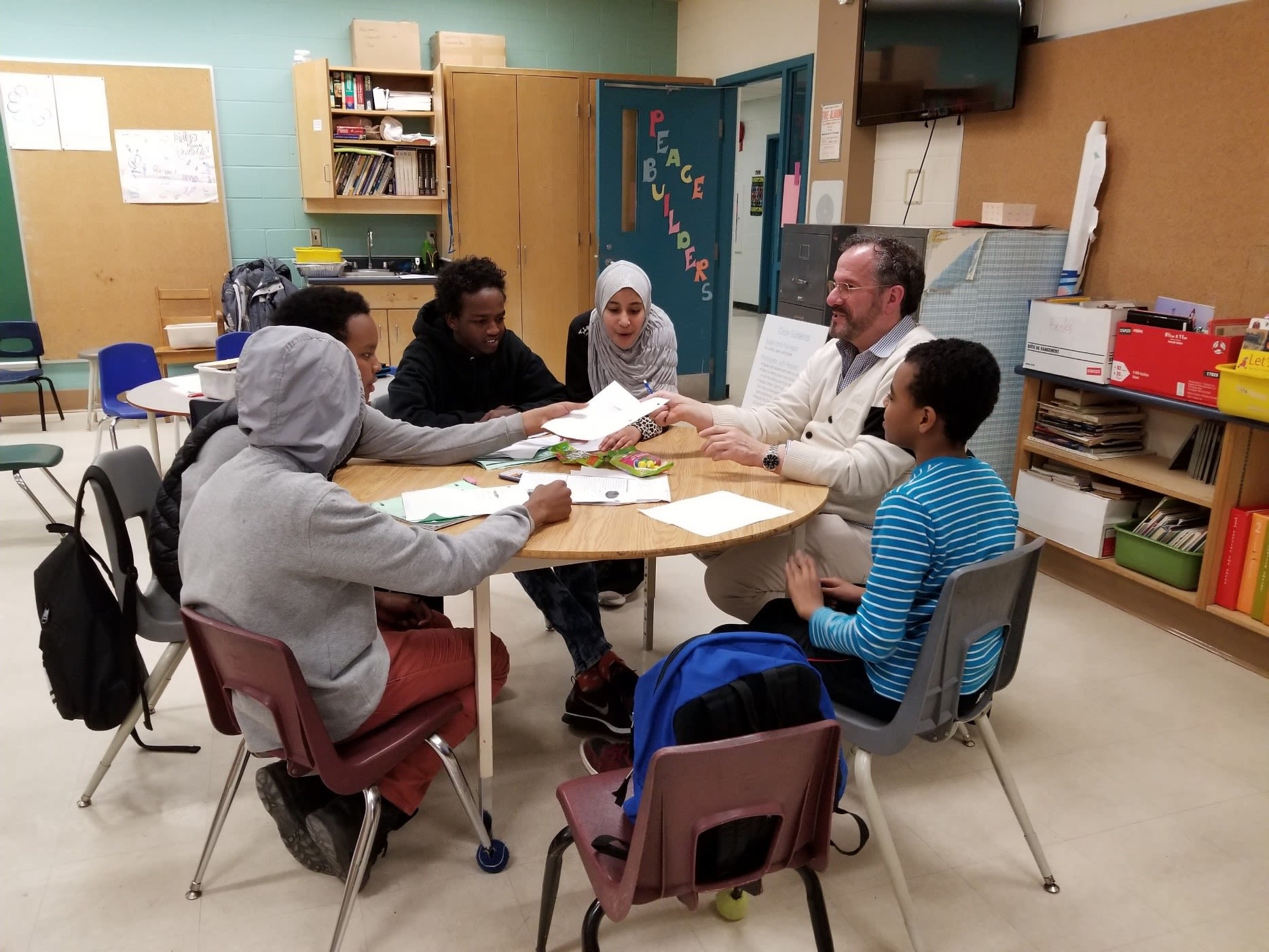
United for Impact
It takes experience to consistently deliver effective learner-centered services in so many diverse places across Canada. We were among the first organizations accredited by Imagine Canada’s Standards Program based on our demonstrated commitment to excellence in board governance, financial accountability and transparency, fundraising, staff management, and volunteer involvement.
With more than a century of frontline experience to draw on, United for Literacy brings deep expertise, supported by extraordinary volunteers and collaborations, to the challenge of bridging Canada’s literacy gap. We see the impact of our collective work every day in the lives of the tens of thousands of people who are empowered by gaining literacy skills and the confidence they need to reach their goals… and explore their full potential.
Strength in numbers
A snapshot of the kind of annual impact United for Literacy delivers…
Learners
- Thousands of children, youth, and adults participate in our programs including:
- Working with children and youth to improve their reading, writing, math skills, schoolwork completion, and self-confidence.
- Organizing literacy camps in urban and remote communities for thousands of children
- Providing extra support to adults pursuing high-school, college, university goals, gaining sustainable employment, and becoming more independent.
Volunteers
- Thousands of trained volunteers help deliver our services, in person and online.
Communities
- We work with over 400 partners annually to deliver quality literacy support in their communities.
- Co-create literacy workshops and conferences, attended by hundreds of parents, teachers, literacy practitioners, social service workers, and community members.
- Support and train frontline workers of other organizations to identify and address barriers to client success that are rooted in low literacy and basic skills.
Free Resources
- Thousands of free, new books, including books by Indigenous authors, and activity kits are distributed to families support at-home learning.
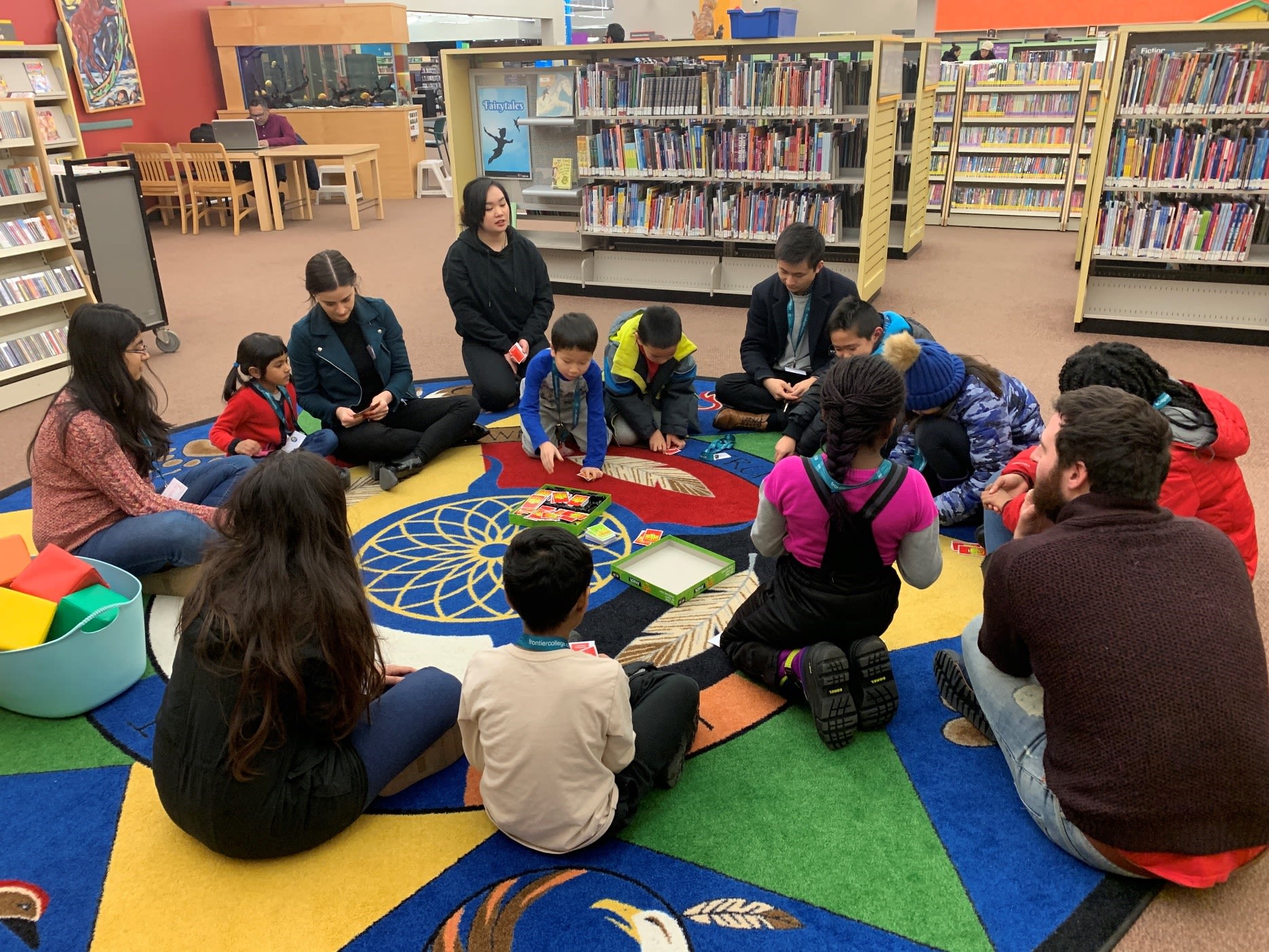
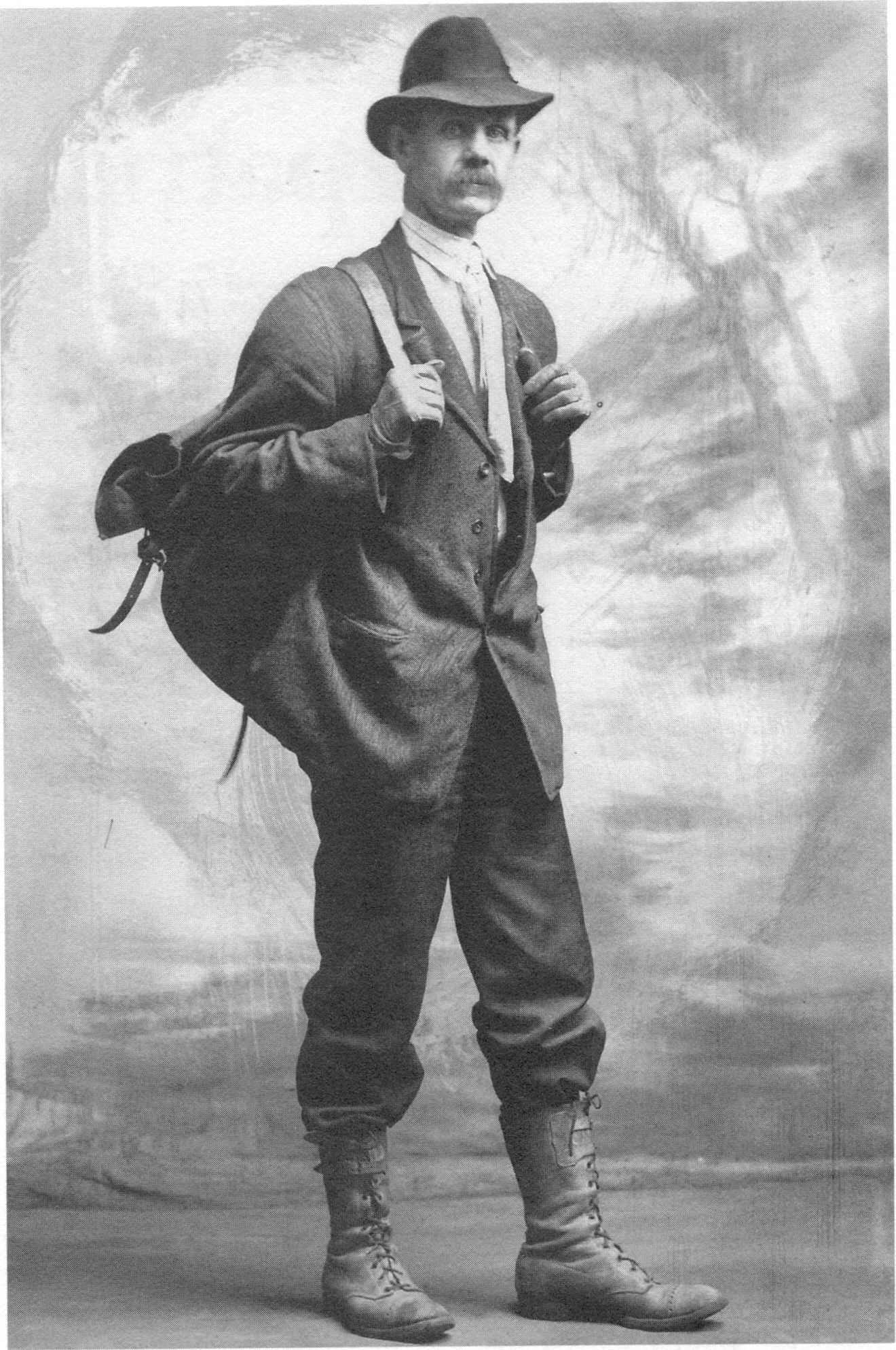
Teacher Alfred Fitzpatrick creates The Canadian Reading Camp Movement. Reading tents are set up in remote and isolated communities and equipped with books and volunteers to teach workers in logging camps, on the Canadian National Railway, and
in mines to read and write.
Fitzpatrick’s approach—every place is a learning place— established how education and basic literacy was taught throughout Canada.
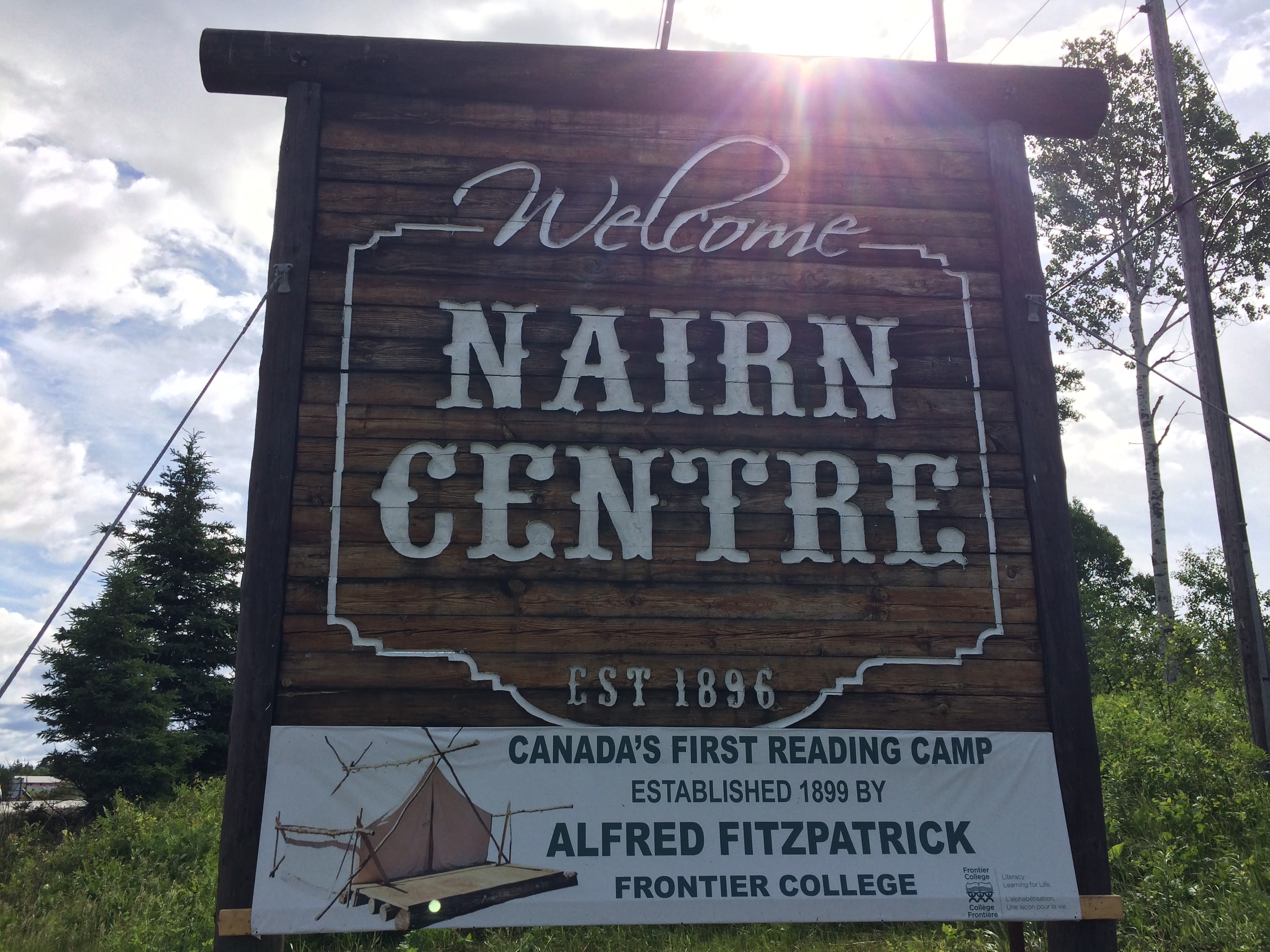
Fitzpatrick develops the Labourer-Teacher model after Angus Gray, a University of Toronto student and tutor, tired of waiting for his students to come to classes in the evening, joins workers in digging a ditch in Nairn Centre. Labourer-Teachers were recruited from universities to work alongside labourers by day and then teach them to read and write at night. Thousands of young Canadians have since served as Labourer-Teachers, tutors, and mentors.
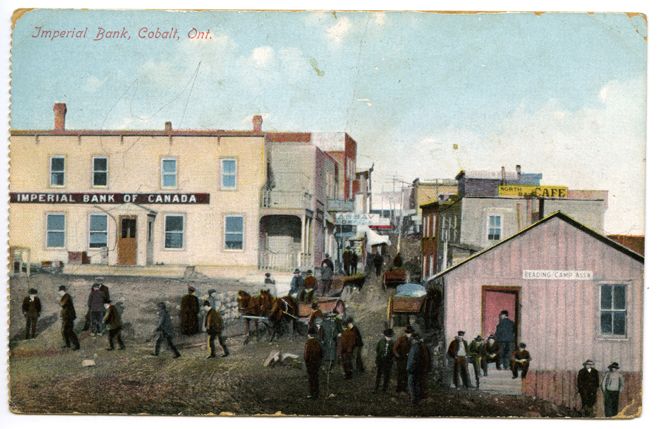
Alfred Fitzpatrick establishes Canada’s first adult education organization, The Reading Camp Association.
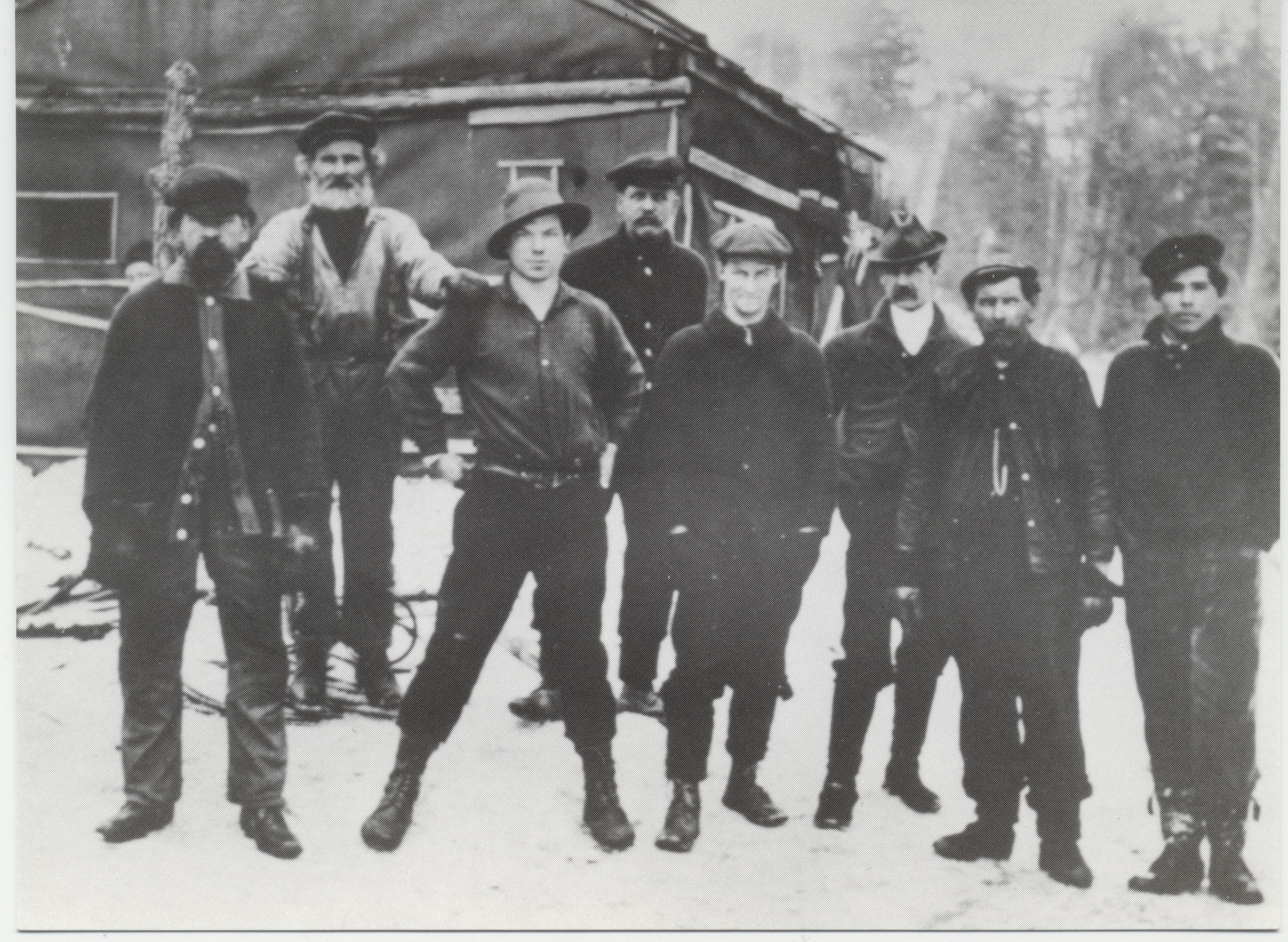
Norman Bethune, a second-year university medical student joins the organization as a Labourer-Teacher. He works at the Victoria Harbour Lumber Company teaching math, history, hygiene, spelling, geography, and letter writing to immigrant workers.
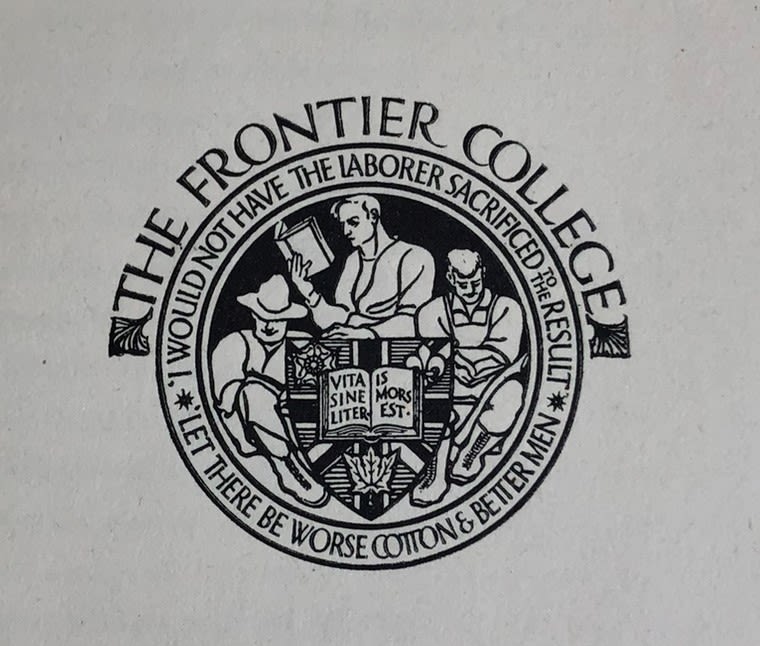
The Reading Camp Association changes its name to Frontier College. In 1919 the Ontario Government incorporates the College recognizing it as a teaching organization like any other College.
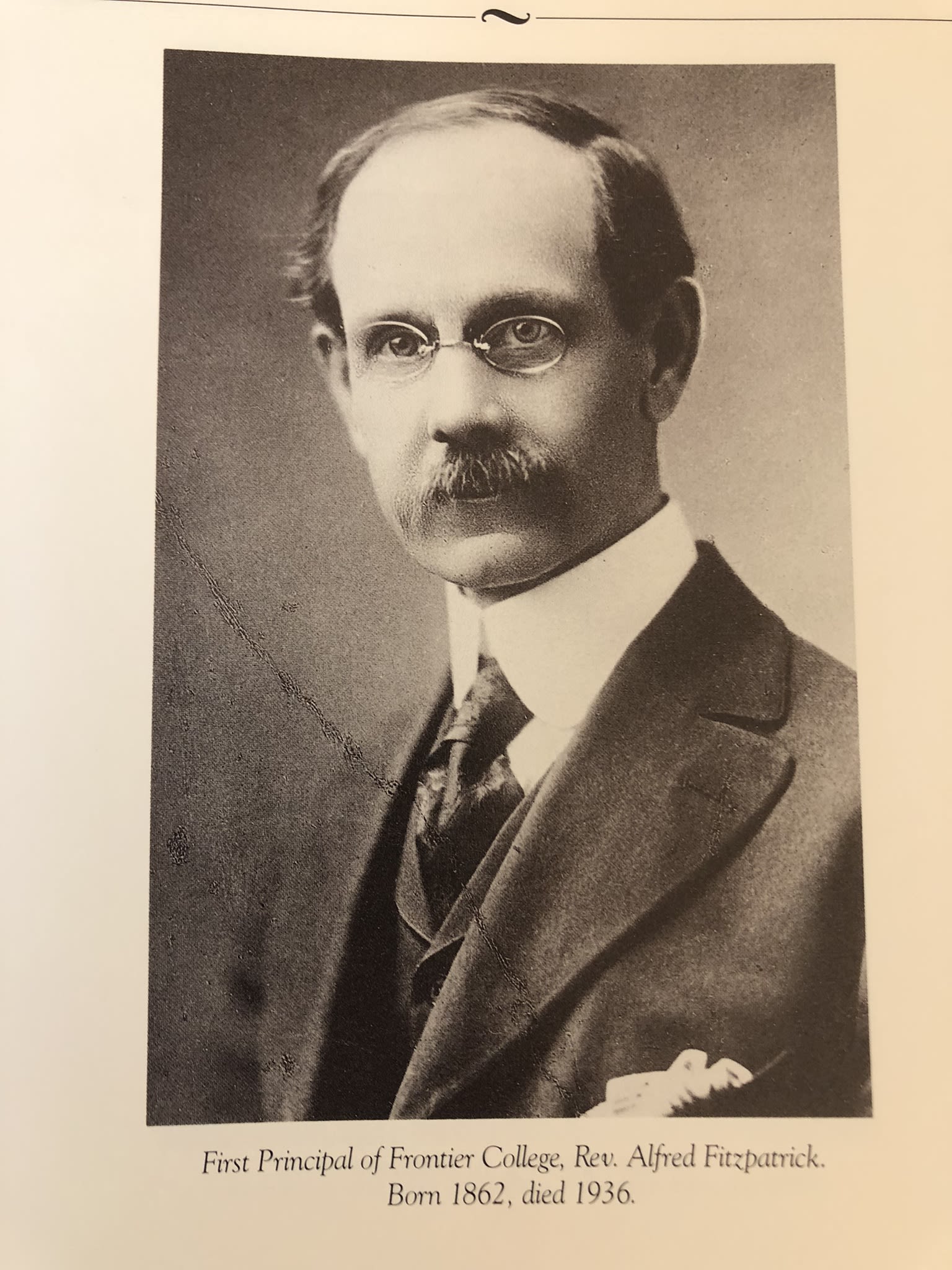
The Canadian Government, recognizing the national character of the College, passes a parliamentary Act allowing the College, with Alfred Fitzpatrick as the first Principal, to award university degrees anywhere in Canada.
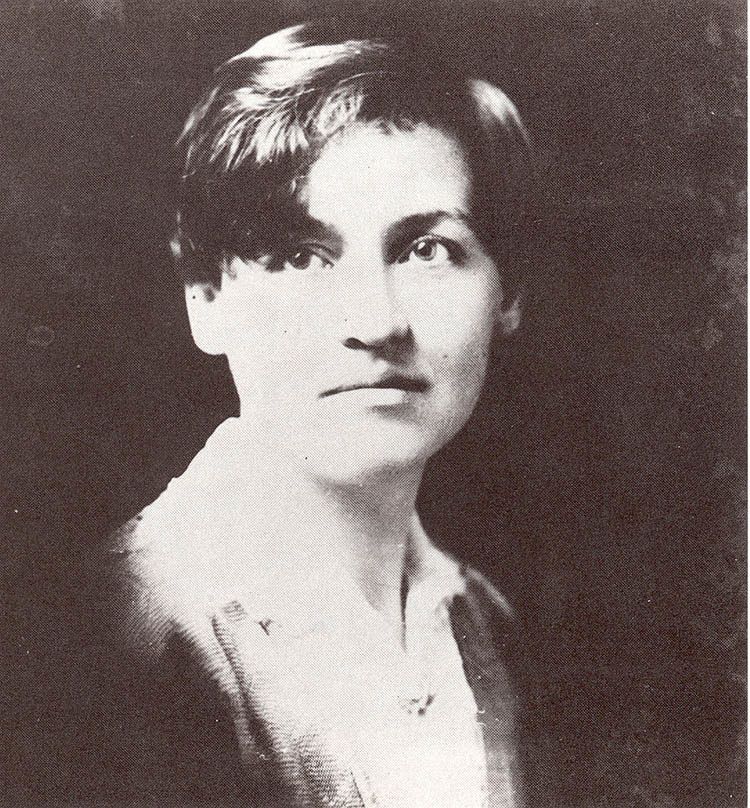
Dr. Margaret Strang, an itinerant, works as a Labourer-Teacher, travelling by horse to reach children in remote communities.
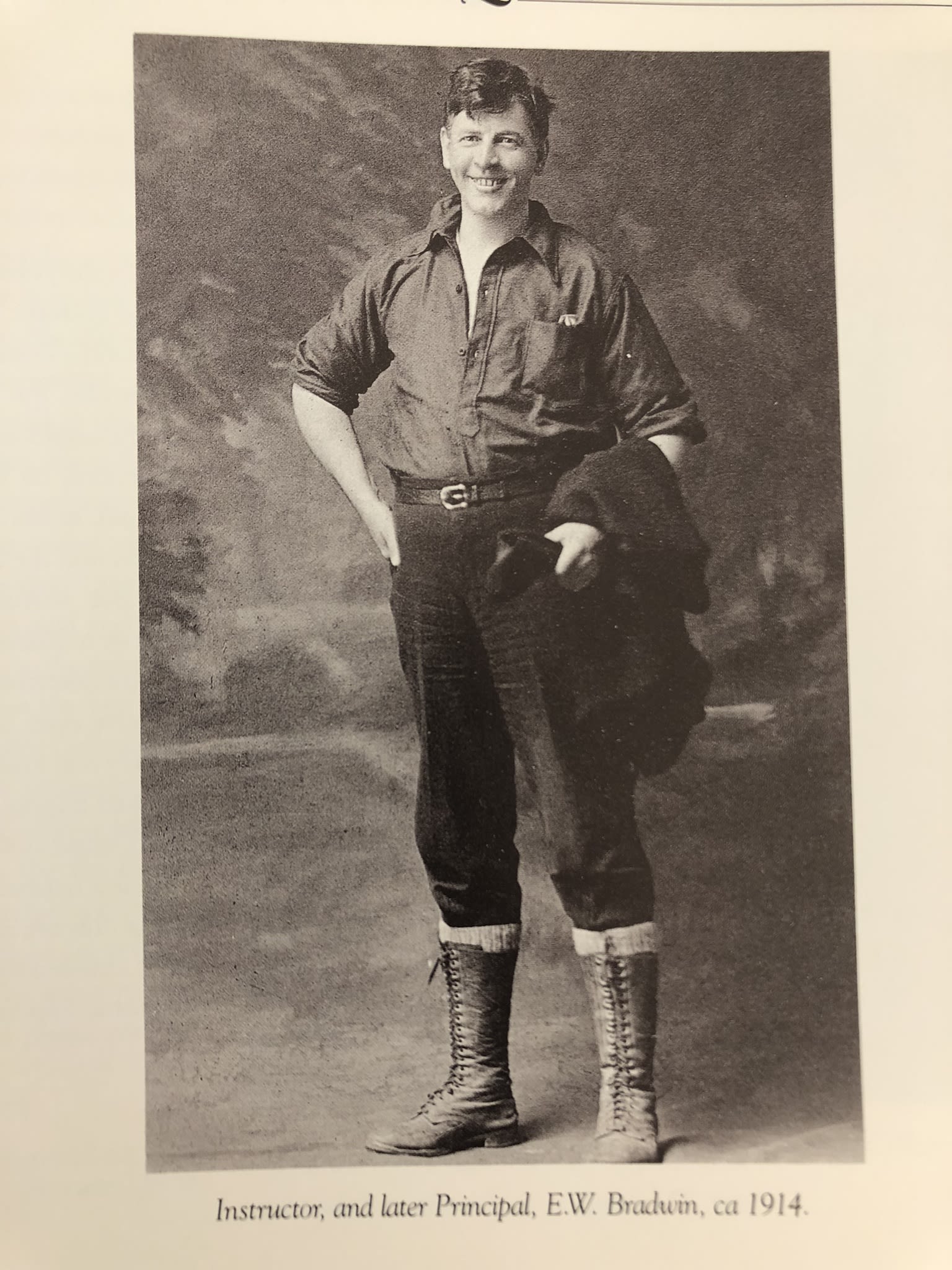
With pressure from some universities, the Ontario Government, and the financial constraints of the Great Depression, Frontier College requests Parliament to revoke its degree granting status. Alfred Fitzpatrick retires, and Edmund Bradwin is named Principal in 1933.
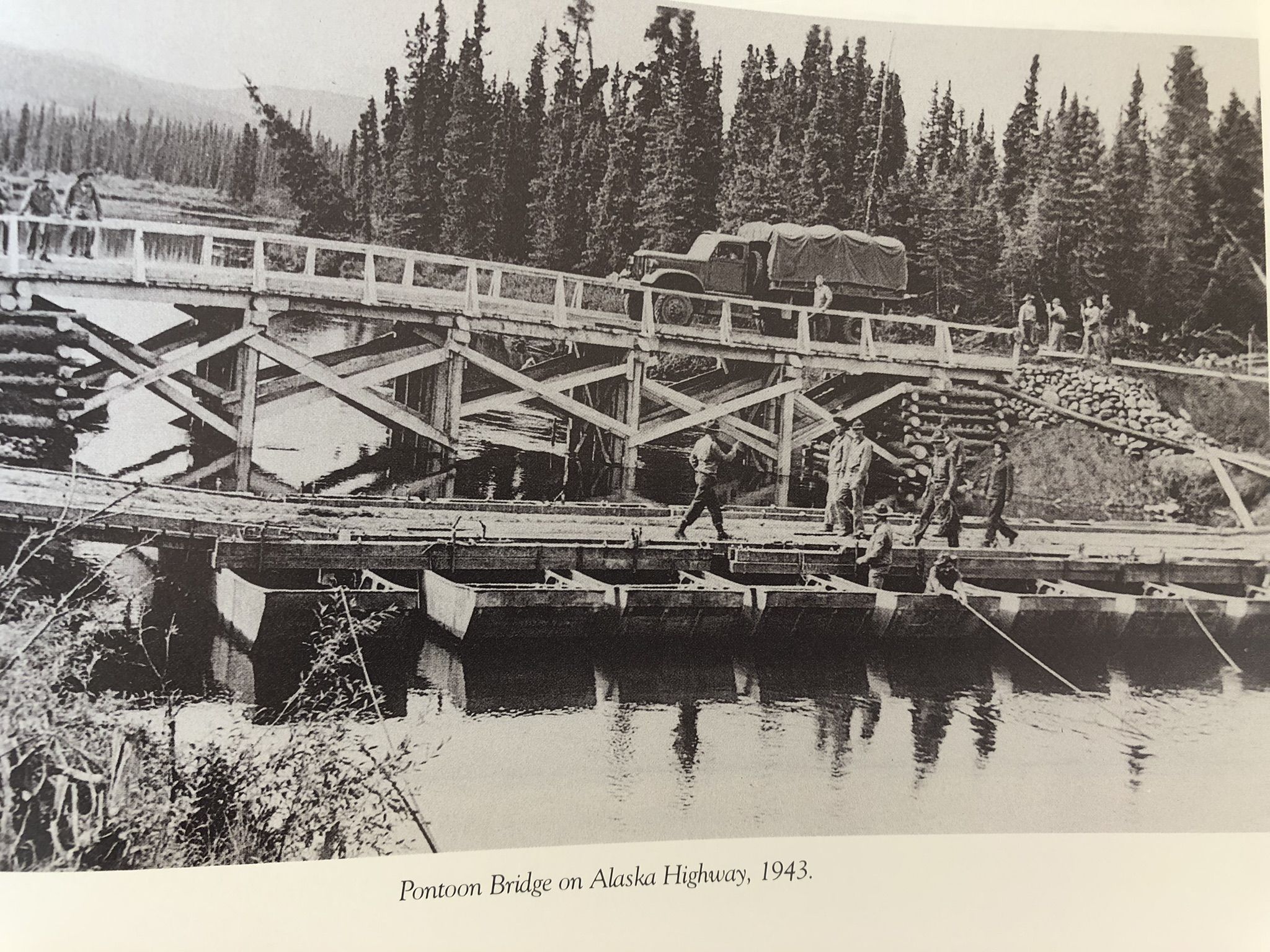
During World War II, Labourer-Teachers are sent to assist Canadian and American construction crews to build the U.S. to Alaska highway through British Columbia.
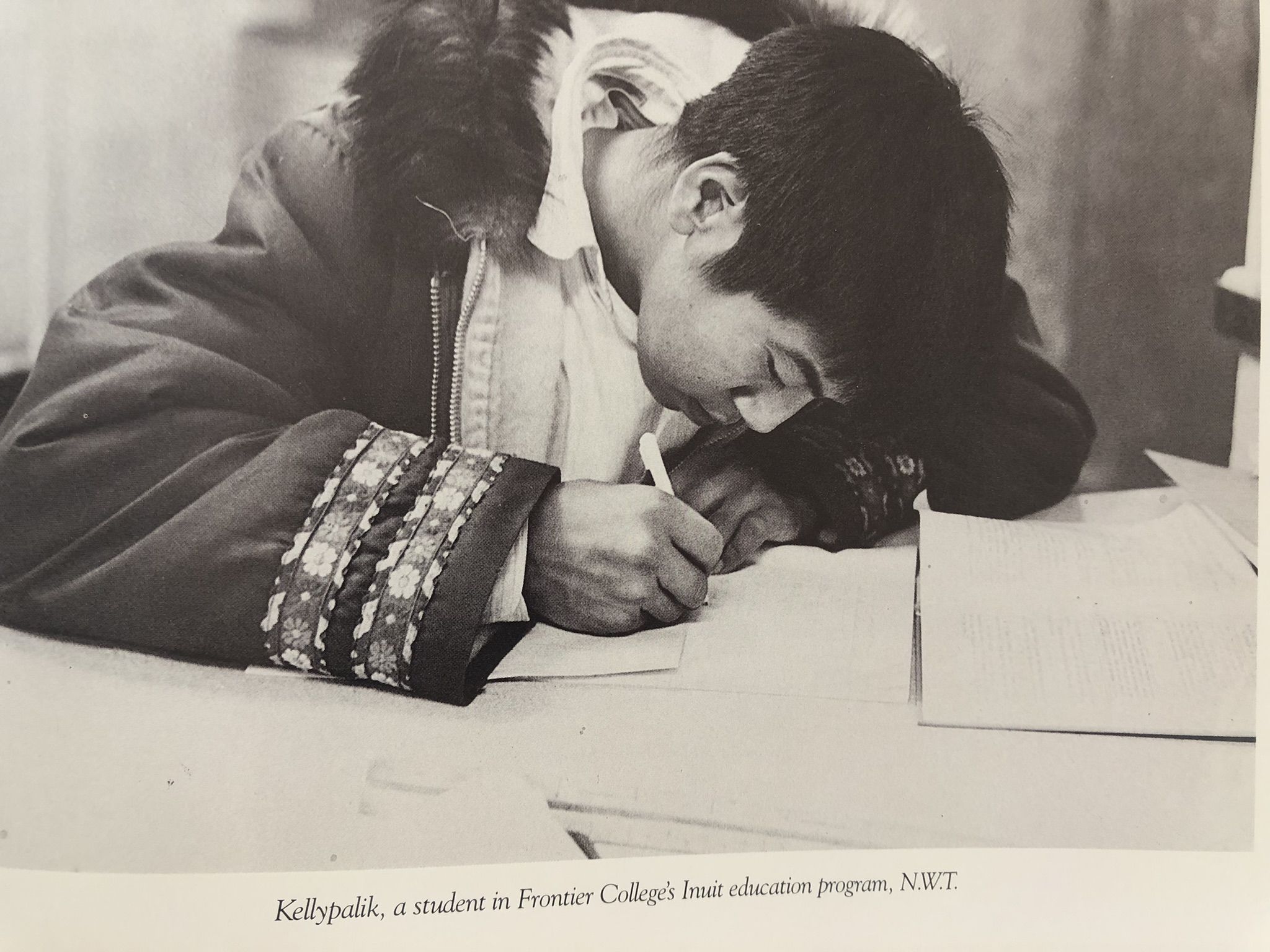
The Government of Northwest Territories contracts Frontier College to serve Dene and Inuit individuals in minimum security institutions. This is the organization’s first prison literacy initiative, later named Transitions. The Government of Northwest Territories, Department of Education, and Department of Indian Affairs and Northern Development Act
also engage us in establishing community adult learning centres. These are later incorporated into the community college system.
A new Workplace Learning model, where Labourer-Teachers work in several Yukon mines, is created.

Frontier College is the first Canadian organization to receive a UNESCO Medal for its exemplary work in promoting literacy.

Independent Studies for adults with developmental disabilities is established to support those who are working toward greater independence and education, employment, or life opportunities.
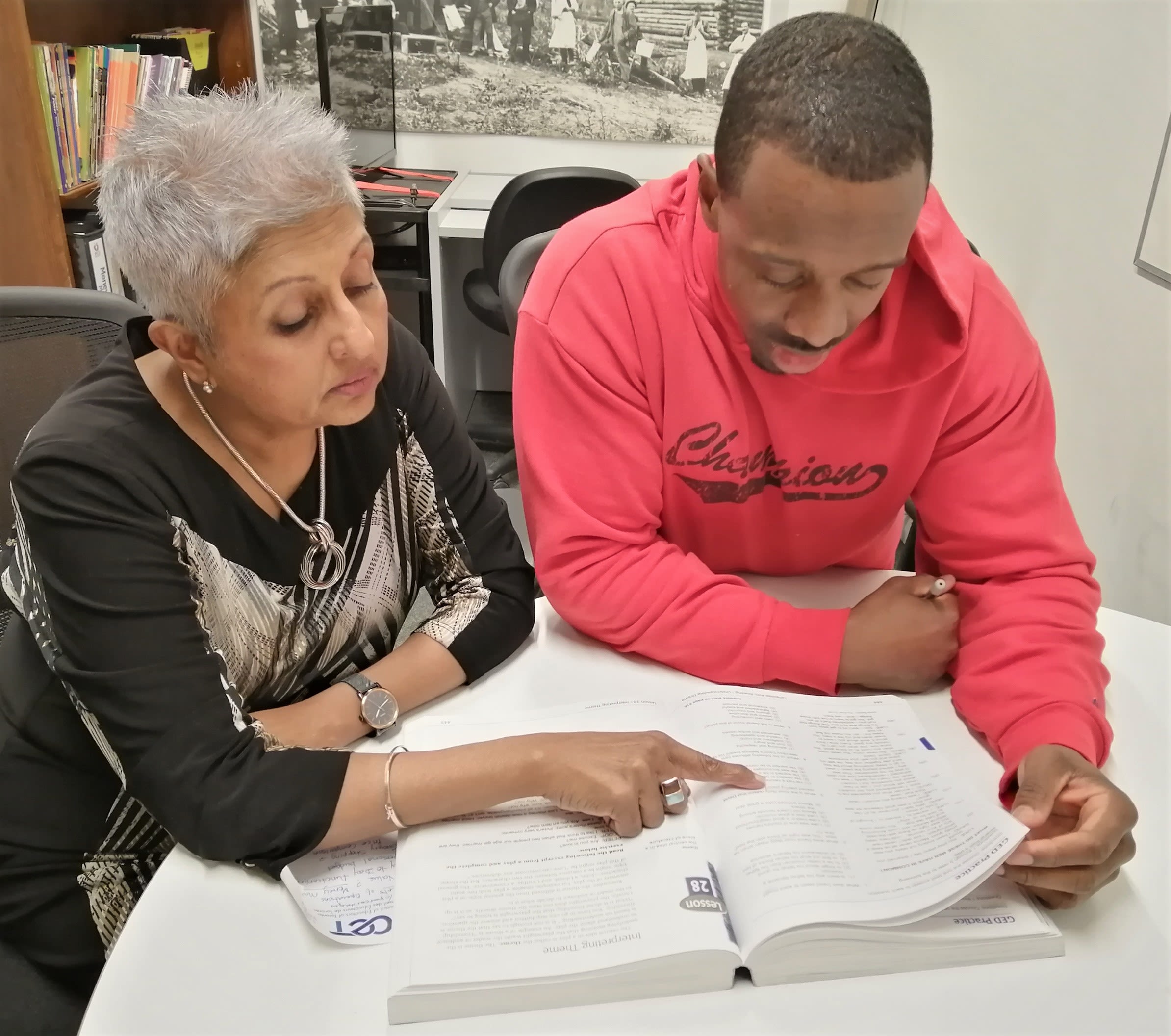
Two former street-involved youth create the Beat the Street program. Literacy and Basic Skills are taught including preparation for the General Education Diploma® (high school equivalency diploma) Many graduates of this program have become entrepreneurs or trades workers and pursued post-secondary education.
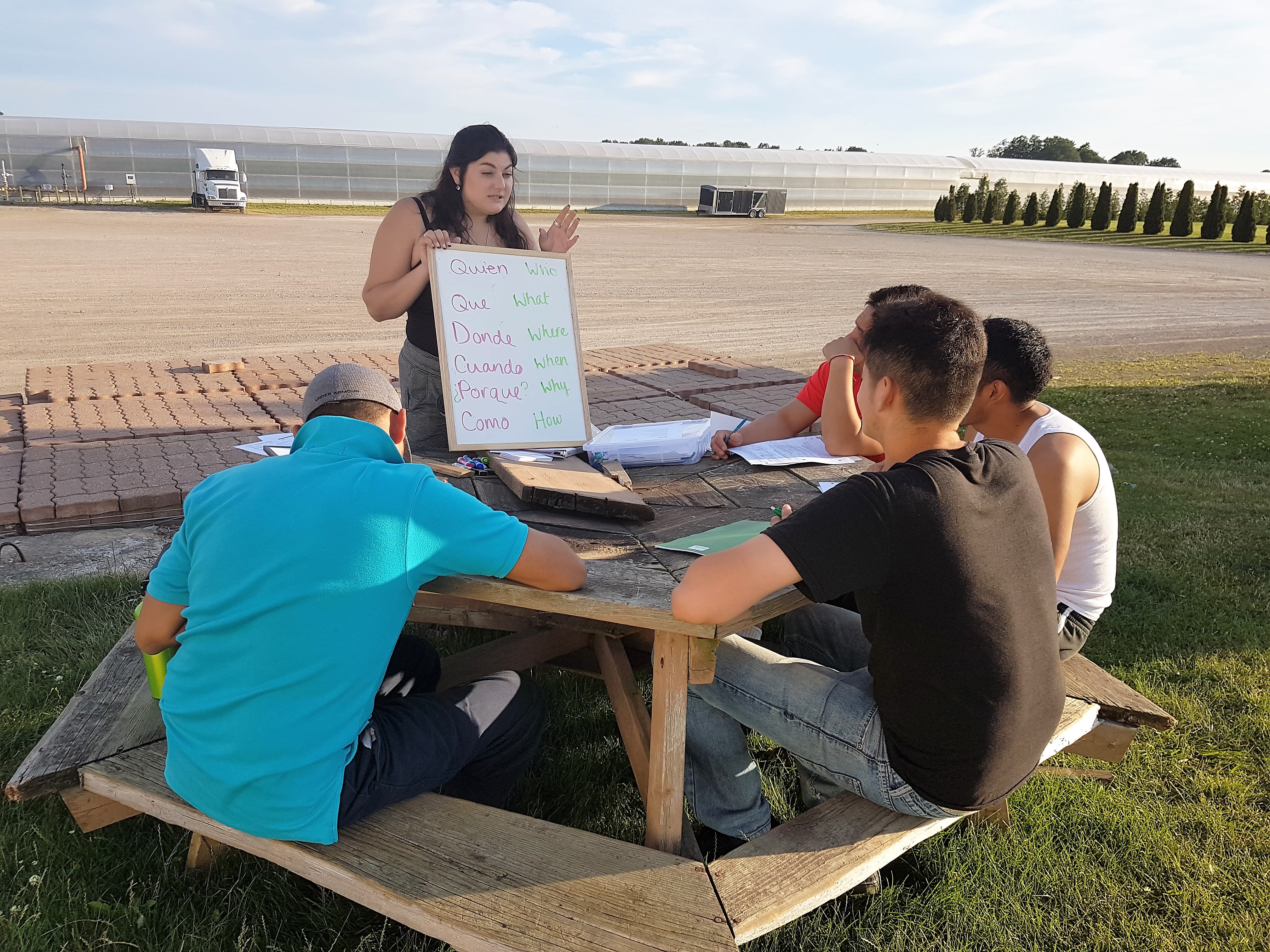
The Labourer-Teacher program expands to farms and in greenhouses in Central Ontario. During the spring and summer months, Labourer-Teachers work alongside migrant seasonal workers, while volunteering as tutors, mentors, and recreation organizers.
The national Students for Literacy program is formed to build a reading culture in Canada with the help of university and college volunteers. They are screened and trained to run reading circles, homework clubs, and reading tents for newcomers and refugees, Indigenous Peoples, and families in their communities. The program launches at McGill University in Montreal.
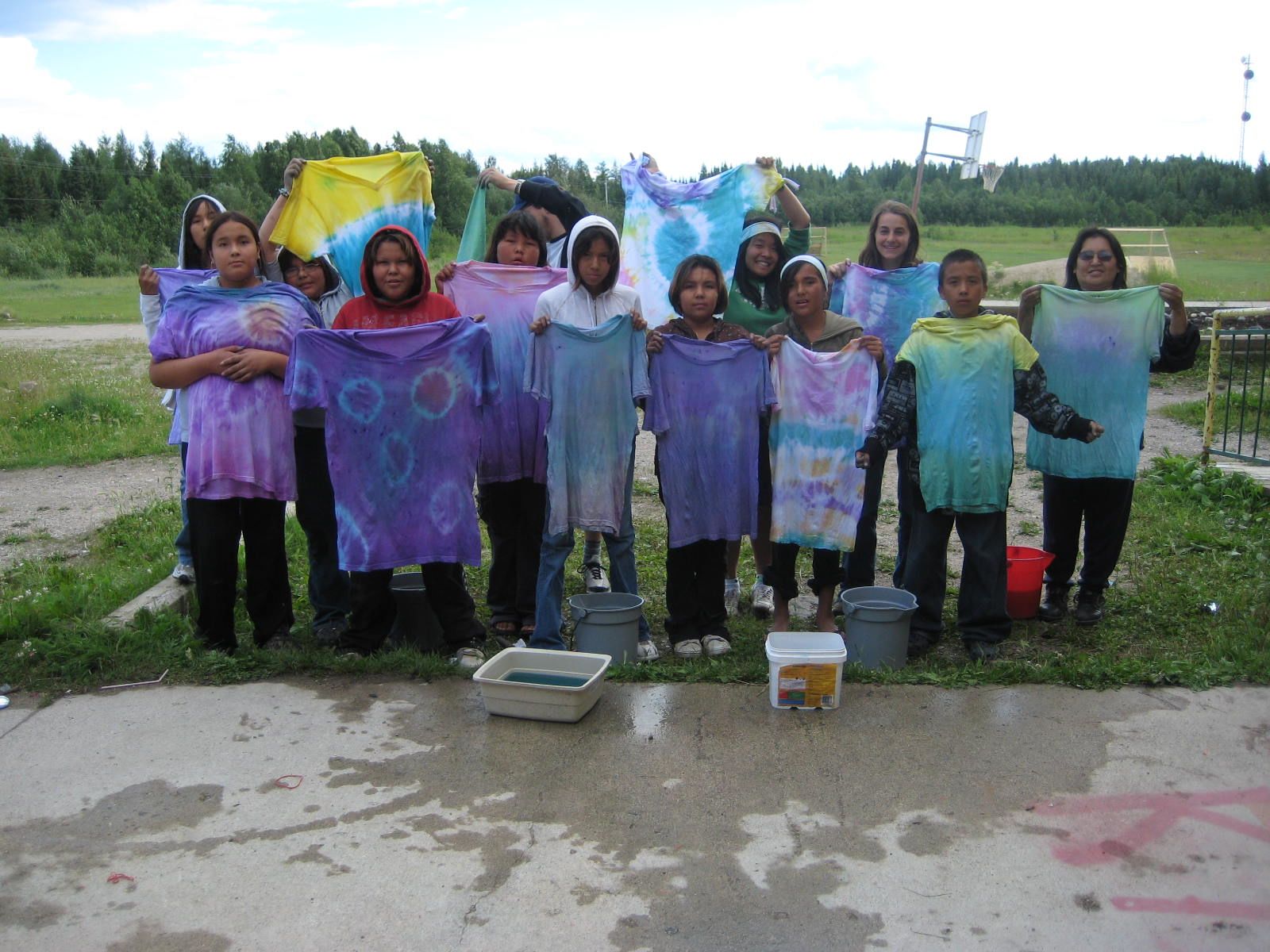
At the request of The Honourable James Bartleman, Ontario’s first Indigenous Lieutenant Governor, Frontier College led the creation of Summer Literacy Camps for children and youth, in partnership with Indigenous communities.
Bartleman’s vision is to have a blend of Indigenous and non-indigenous camp counsellors to promote a sharing of cultures. Since then, camps are run in nearly every province and territory to help motivate kids to learn, and actively develop their literacy and numeracy skills during the summer.
The year-round Community Literacy Catalyst program is established with Indigenous communities. Local community members are hired and supported by Frontier College, to deliver of customized, culturally relevant literacy activities and workshops to other residents of all ages. The program continues
to run in urban and remote communities across the country.
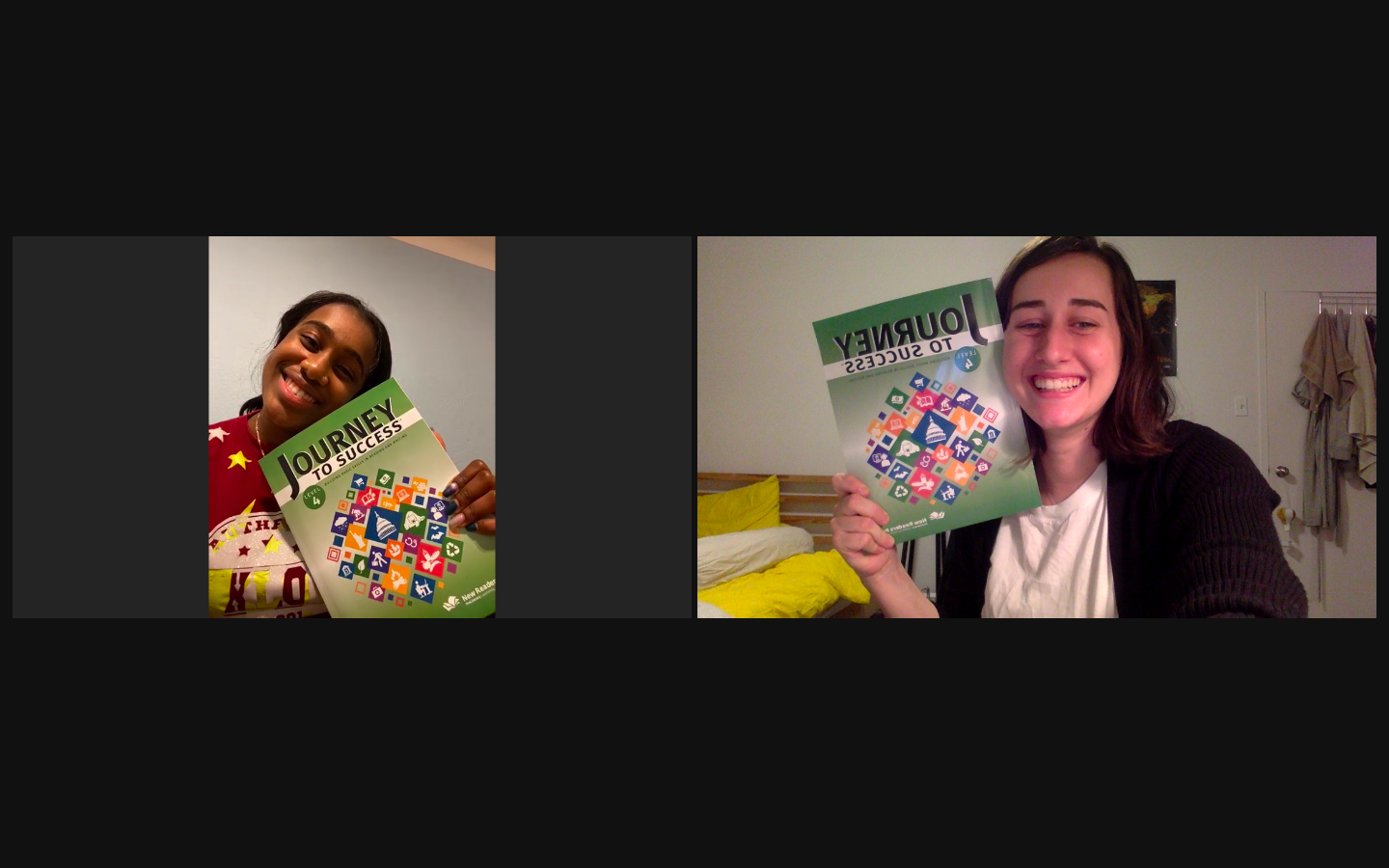
Physical restrictions resulting from the COVID-19 pandemic requires the organization to move entirely to online tutoring for the first time in its history.
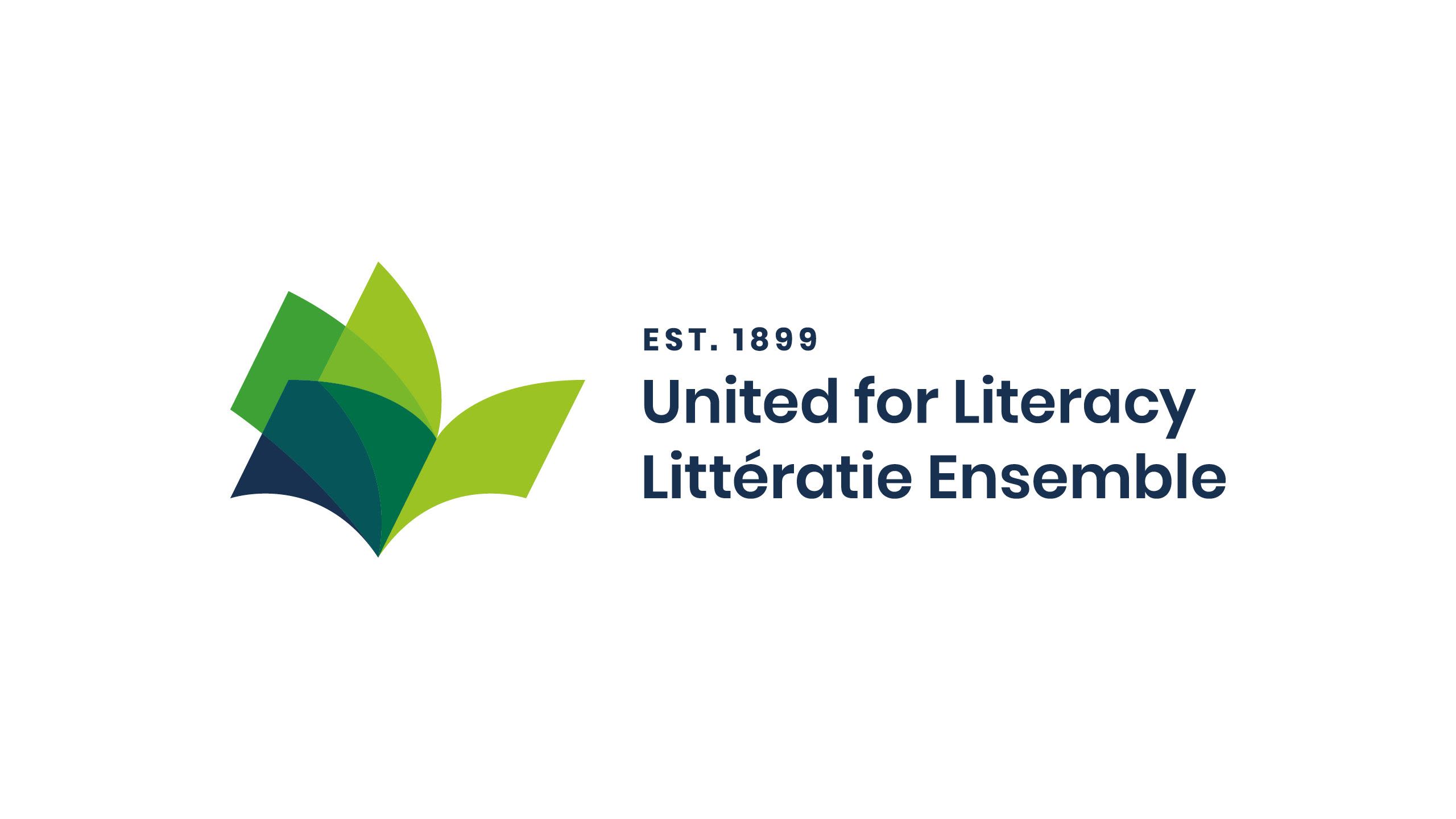
Frontier College changes its name to United for Literacy, reflecting the ambitious next chapter in its history.

